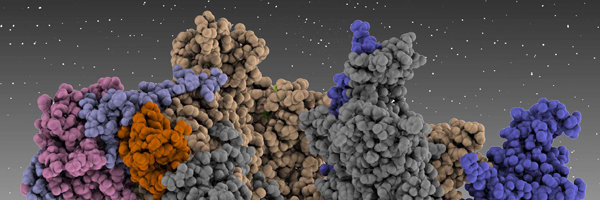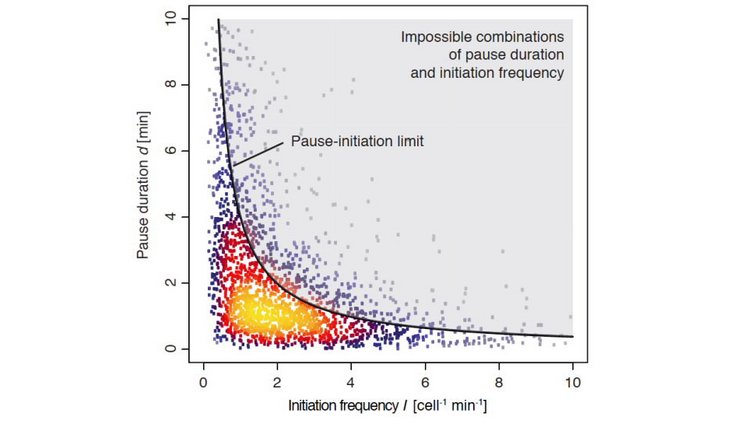
Molecular Biology
Genome Transcription and Regulation
We are an interdisciplinary team of researchers who wish to understand how our genome is transcribed and regulated in health and disease. Why is this important? Transcription is the first step in the expression of our genetic information and is highly regulated during cell differentiation and organism development. We wish to understand how genes are switched on, and how genes are dysregulated in diseases such as cancer.
To this end, we combine structural biology with functional genomics and bioinformatics in eukaryotic systems. We determine the three-dimensional structure of large transcription complexes by a combinantion of cryo-electron microscopy, X-ray crystallography, and crosslinking-mass spectrometry methods. The obtained structures are combined with functional data. This led to a first molecular movie of transcription and detailed insights into the mechanisms of transcription initiation from different promoters. We solved structures of the coactivator Mediator, and a chromatin-remodelling factor bound to the nucleosome.
In the future, we will continue to develop the methods and will study the structural basis of transcription regulation in chromatin. We also develop and use functional genomics methods and computational approaches to study genome regulation in living cells. Recent achievements include our development of transient transcriptome sequencing, or TT-seq, that can monitor dynamic changes in enhancer landscapes. We also developed a multi-omics approach to extract kinetic parameters of RNA polymerase initiation frequency, pause duration, and elongation velocity. In the future we will study the mechanisms of enhancer function, differentiation, and RNA metabolism, including transcription-coupled RNA processing. We also develop methods to improve transcriptomics on the single cell and single molecule level.





